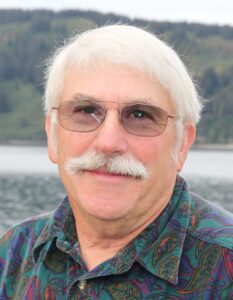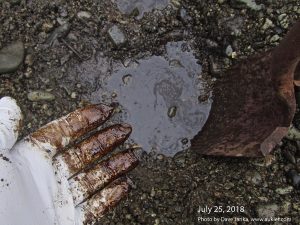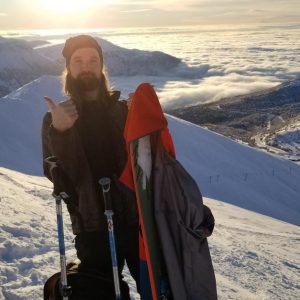
Oh, how time flies. It has now been just over 34 years since the Exxon Valdez oil spill. So much time has passed, but I still believe there is something to learn every day.
The Council recently released a report detailing accounts of unacceptable safety risks at the Valdez Marine Terminal. We hope this report provides an opportunity for the Council, industry, and regulators to work together to address any substantial safety issues at the terminal.
With new oil development on the horizon, every effort must be made to ensure the integrity of systems and infrastructure within the Trans Alaska Pipeline System, including the Valdez Marine Terminal.
The issues and recommendations covered by the assessment and report will take some time to address. The Council stands ready to support Alyeska, and state and federal regulatory agencies. As we move forward, the Council plans to conduct outreach within our region to share opportunities, as they arise, to help ensure that the key findings and recommendations in the report are addressed. We must do everything we can to protect our people, communities, economies, and our environment from another major oil spill.
Thinking about the Council’s duties and responsibilities during these challenging times brought to mind comments I heard at a recent Homer community meeting on defining moments. A long-time resident stood up and proceeded to give her thoughts about an endemic problem with modern society. It is the use of the word “the,” instead of the word “our.”
Just sit back and think how the word “the” is used today. The problem, the government, the city, the laws, the regulations, the schools, the responsibility, the resources… I could go on, but you get the point. Consider instead if more people made a conscious choice to use “our” instead. Taking ownership of challenges instills a more dynamic participation in our modern problems.
A small shift with giant results.
The Council was born out of a lack of responsibility on OUR part: industry, government, and public. In 1989, our government and industry were unprepared. While some concerned citizens were trying to raise alarms about the risks of a spill, many folks in our communities were unaware of the danger. The Council was formed to combat the complacency that unfortunately led to the Exxon spill and inform the public about issues that impact the safe transportation of oil through our region, with the goal preventing future spills. We must ensure that the successes we have helped achieve since our formation continue to move forward. This can be extremely challenging in our current environment of budget cuts and staffing reductions within industry and regulatory agencies.
Winston Churchill once said, “Success is not final.” The legacy of those that lived through the Exxon spill and fought to form this citizens council carries on in our work today. Their work – now our work – must continue as long as oil flows through the pipeline.
The Council is a voice for the people, communities, and interest groups in the region oiled by the Exxon spill. Those with the most to lose from oil pollution must have a voice in the decisions that can put their livelihoods and communities at risk. Our common goal with industry and regulators is to help maintain and improve safe operation of the Valdez Marine Terminal and associated tankers.
We hope that, years from now, we can look back at actions taken as result of this report release and see that they created another great success in the history of the safe operation of the Valdez Marine Terminal and our spill prevention and response system. We hope this will be another example of citizens, industry, and regulators working together to prevent future oil spills.
After all, we are ALL in this together – to protect our livelihoods, our communities, and our environment.
Let’s do it right.
 In April 2023, the Council released an assessment of risks and safety culture at the Valdez Marine Terminal. This report was initiated in June 2022, in response to safety concerns brought to Council staff by current and former Alyeska employees.
In April 2023, the Council released an assessment of risks and safety culture at the Valdez Marine Terminal. This report was initiated in June 2022, in response to safety concerns brought to Council staff by current and former Alyeska employees.
